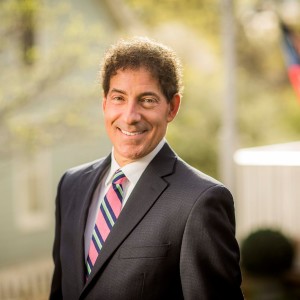He began by giving a lecture, but ended up doing some of the learning himself.
It was exactly what Jamie Raskin hoped for Thursday night, when the American University law professor joined the roiling national debate over campus “political correctness,” headlining a forum AU hosted on subjects like “safe spaces” and “trigger warnings.”
He certainly could have declined the invitation, as the Democratic congressional nominee for Maryland’s 8th district this fall. Few would have faulted the Takoma Park state senator for opting not “to talk about the most controversial issues in the country 50 days before my election,” as he joked to the crowd.
But maybe that wouldn’t have been Jamie Raskin — the outspoken progressive, the longtime constitutional scholar, exactly the kind of person who’d be drawn to a conversation pitting “social justice warriors” against liberal defenders of free speech and pluralism.
In his speech on “the politics of disagreement,” Raskin objected to some of the big ideas recently advanced by campus progressives across the country in the name of sensitivity. He dismissed concerns over “cultural appropriation,” whereby members of a dominant culture “borrow” dress, art or other traditions of marginalized cultures, effectively saying all culture belongs to everyone.
Regarding so-called “free-speech zones,” which campuses have used to limit certain expression to designated locations, he was especially emphatic: “This is America! The whole country is a free-speech zone!”
After his talk, he entered into conversation with a panel of undergraduates, where he asked for clarification on what they mean demanding “safe spaces” on campus. The term is nebulous and, at least in this forum, ill-defined. (Incidentally, it was after Raskin left that student government president Devontae Torriente offered the night’s best definition: he called them “healing spaces” for “students on campus who feel that white supremacy, patriarchy and sexism operate against them on a daily basis.”)
Where Raskin clearly found at least some agreement with students was on the subject of “trigger warnings,” the labels professors can place on their syllabi to give classes a “heads up” about potentially traumatic content — including material related to sexual and domestic violence. Raskin initially voiced skepticism, arguing that everyone is sensitive about some topic.
But when a campus rape survivor in the audience told him how a professor’s warning conveyed a sense of caring — “I see you, and I understand you” — he praised the teacher. Raskin just doesn’t want an across-the-board mandate for these measures.
“Again, I’m learning a lot about the trigger warnings,” he said. “I would hope they would be used to invite dialogue and help prepare people to be emotionally ready to participate.”
Torriente said the idea that students typically hope to opt out of material, as opposed to simply prepare for it, is a major misconception.
“I think, by and large, students who demand trigger warnings are students who want to participate,” he said.
AU’s current policy is that professors are free to issue trigger warnings, but they aren’t required. Sophia Celeste Vos, a sophomore on the panel, sounded like she’s open to a mandate. “Are we just going to say we’ll leave it up to faculty, and we want them to have all the personal freedom they want and allow these [traumatic events in class] to happen at the expense of our students? And if we are going to do that, can our campus afford it? Is our counseling center properly staffed? Perhaps not.”
In general, Raskin tried to nudge students toward activism outside the classroom, praising climate organizing and urging involvement in the D.C. statehood movement.
“It’s not that I’m dissing student activism,” he said. “What I’m saying is that some of it appears to be very inward focused, and you’ve raised my consciousness tonight about why.”

